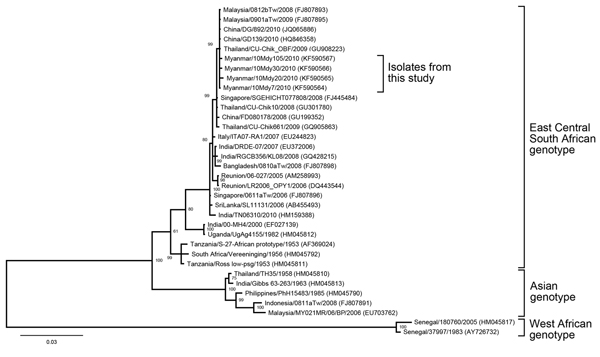Volume 20, Number 8—August 2014
Dispatch
Detection of East/Central/South African Genotype of Chikungunya Virus in Myanmar, 2010
Figure 2

Figure 2. Phylogenetic tree constructed on the basis of whole E1 gene sequences of chikungunya viruses, showing location of 4 isolates obtained from children in Myanmar within the East Central South African genotypeRepresentative strains of each genotype obtained from GenBank are named by country of origin, strain name, year of isolation, and accession number (in parentheses)Bootstrap values are indicated at branch nodesScale bar indicates nucleotide substitutions per site.
Page created: July 18, 2014
Page updated: July 18, 2014
Page reviewed: July 18, 2014
The conclusions, findings, and opinions expressed by authors contributing to this journal do not necessarily reflect the official position of the U.S. Department of Health and Human Services, the Public Health Service, the Centers for Disease Control and Prevention, or the authors' affiliated institutions. Use of trade names is for identification only and does not imply endorsement by any of the groups named above.